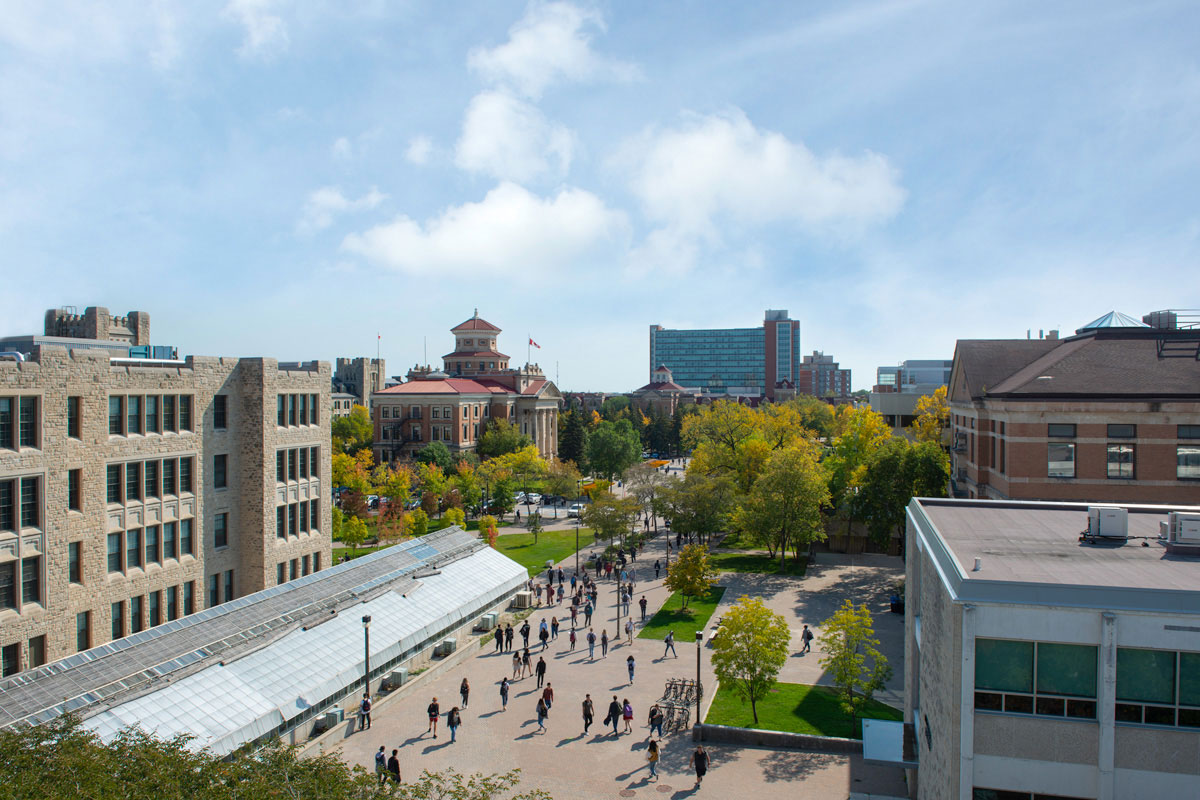
Five tips to get involved with research as an undergraduate student
Are you a current undergraduate student looking for ways to experience research? Here are 5 ways to get your foot in the door and get started.
- Connect with teaching assistants (TA’s) and professors about lab work and volunteer opportunities.
Most of the research at UM is conducted under the supervision of a Principal Investigator or Professor. Many faculties, including the Faculty of Science, host a broad spectrum of departmental research and research centres and facilities. For most research positions it is okay to have no prior research experience because you are there to learn! When applying to roles and updating or enhancing your resumé, consider including relevant courses, projects, and assignments you have completed in your classes. Make sure to follow up on your emails, without spamming; and if you are unsuccessful in one hiring cycle, reach out to ask for feedback.
Stuck on what to say when reaching out? Check out this template:
Hello [Professor’s name],
My name is [your name]. I am a student in [your program/faculty] andam interested in learning about your work in [their research areas], particularly your research on ____ [OR I was a student in your class __]. Would it be possible to set up a meeting in the coming weeks? I would also be interested in discussing work or volunteer opportunities connected to your research. I have also attached my resume/CV for your convenience.
I look forward to hearing from you.
- Learn about the Undergraduate Research Award (URA) and the Science Undergraduate Research Award (URSA)
The URA and USRA are important UM programs to explore if you’re interested in research. If you are considering taking part in the Undergraduate Research Awards program, reach out early to eligible researchers willing to supervise students. After you have found a potential mentor to work with, it’s easier to secure a work term if you have funding. Be proactive in applying for grants, funding, and using supports that can assist you during your research term. Some major funding sources include but are not limited to: URA/URSA, NSERC/CIHR, CHRIM, ENRRICH, MITACS, and the Northern Scientific Training Program. Don’t hesitate to consult with your supervisor or faculty to explore potential additional funding options.
- Explore UM affiliated research centres and policy institutes
There are many research centres and policy institutes that are located on campus or affiliated with UM. In addition to working as a research assistant, you might also want to consider a role as a policy assistant. Policy research and analysis work is also a common area of work for university graduates from a wide range of subject backgrounds. Roles at these organizations, or within some government departments, could provide great exposure to the field of research.
Did you know? Science policy and program officers conduct research and advise on policies or develop or administer programs related to transportation, emergency preparedness, communications, natural resources, agriculture, the environment, traditional and alternative energy technologies, land use, recycling and other scientific fields (National Occupational Classification).
- Explore off-campus work experience in research
Both the provincial and federal student hiring programs, STEP and FSWEP, can offer a chance to get paid experience in your field of interest, and this can include research-related opportunities. Industry sector councils and other organizations also offer skill building opportunities related to research through student hiring programs or funding supports; here are a few examples: BioTalent Canada, EcoCanada, Mitacs, LevelUp Riipen, Global skills opportunity. As an added bonus, you’ll learn about different industries at the same time.
- Consider other on-campus experiential learning opportunities
Beyond those already mentioned, there are additional resources available for engaging in research, such as through Co-op and Internships, the UM Work-Study Program, field placement courses, and honours coursework in a variety of programs at the UM.
There are so many ways to engage in research as an undergraduate student. If you are interested in research and potentially graduate school, it’s also never too early to start exploring program admissions – especially as you compare research/thesis vs. applied masters programs. Unsure where to start as you define your goals, or what additional steps to take as you plan for success? Visit Career Services anytime throughout the year!






